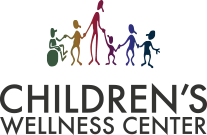Eczema
Eczema is a chronic, red, itchy skin disorder that is very common, affecting 10% of children. It is often seen in children who have allergies. The skin is usually dry and may also become thickened with time. In babies it often begins on the cheeks and forehead and then spreads to the body, arms, and legs. In older children, the rash commonly occurs in the elbow creases and behind the knees, wrists, and ankles.
The cause of eczema is unknown. When it is severe, there is often an allergy that is making it worse. Foods such as eggs and peanuts, pollens, and house dust mites are all common allergic triggers for eczema. Very hot/humid or very cold/dry weather can worsen eczema, as can wool clothing. Scratching of the itchy skin will aggravate eczema as well.
There is no cure for eczema, meaning no treatment that will make it go away and never come back. Fortunately, most children see their eczema improve or resolve as they get older. There are many treatments that can manage eczema very effectively. Most important is the use of moisturizers twice a day. (Eucerin and Aquaphor are popular choices.) The best time to moisturize is after bathing with a moisturizing soap such as Dove. Apply the moisturizer within 3 minutes of drying your child off with a towel to trap moisture in the skin.
If your child’s eczema is triggered by a food allergy, avoid that food. If a dust mite allergy is the problem, special pillow and mattress covers may be helpful. Keep your child’s fingernails short to reduce the impact of scratching. Topical steroid ointments are an important part of treatment. Oral antihistamines can help eczema by relieving itching, especially at night. Since these medications can have side effects if not used properly, we will evaluate your child in the office and select the right amount of treatment for his/her eczema. We will also make any necessary referrals to allergists or dermatologists in the case of severe eczema.
Eczema can become infected, so call our office right away if there is redness, oozing, crusting, and/or fever.
